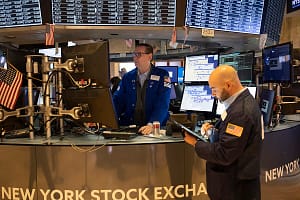The latest KPMG and REC, UK Report on Jobs survey, compiled by S&P Global, pointed to a further slowdown in recruitment activity across the UK at the end of the third quarter. Permanent staff appointments and temp billings expanded at the weakest rates in over a year-and-a-half, as uncertainty over the outlook and limited staff supply hampered growth.
At the same time, overall vacancy growth continued to ease, with both permanent and temporary staff demand rising at the softest rates since February 2021. The downturn in candidate availability meanwhile abated only slightly, which combined with the rising cost of living drove further steep increases in starting salaries and temp pay.
The report is compiled by S&P Global from responses to questionnaires sent to a panel of around 400 UK recruitment and employment consultancies.
Relatively strong demand for staff and efforts to boost capacity supported a further increase in hiring activity at the end of the third quarter. However, the weaker economic climate and candidate shortages dampened overall growth. Notably, recruiters signalled the slowest increases in permanent staff appointments and temp billings for 19 months, with the former seeing only a mild expansion overall.
Commenting on the latest survey results, Claire Warnes, Head of Education, Skills and Productivity at KPMG UK, said: “The UK jobs market remained tight in September, with candidate shortages impacting recruiters’ abilities to fill jobs. Deepening economic uncertainty has also meant that workers are choosing to stay put in current roles, rather than apply for new roles, leading to a moderation in the overall rate of vacancy growth. Some employers, even those who anticipate that the recession may be short, are taking steps now to contain costs, including hiring freezes. Those employers who continue to invest in their workforce, particularly upskilling, may find they weather the recession better and will be in a stronger position to benefit from the upturn as and when it comes.”
Neil Carberry, Chief Executive of the REC, said: “The challenges we see in today’s data reflects the underlying shortage of Labour the UK faces. With unemployment at record lows, pay continues to rise for both temporary and permanent workers starting new jobs, and activity levels across the recruitment and staffing industry remain high. While any economic slowdown this winter will affect the market, the extent of shortages mean that hiring will remain a focus for employers.
“The REC has shown that failing to address these issues could cost our economy massively in the years to come. While there is much that Government can do, like reforming the failed Apprenticeship Levy, a lot of the answers lie with hiring businesses. Firms need to work with skilled recruiters on offers that will maximise the skill base we have. There has never been a more important time for business leaders to put the people stuff first.”






Leave a Comment